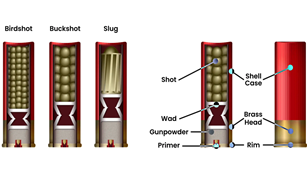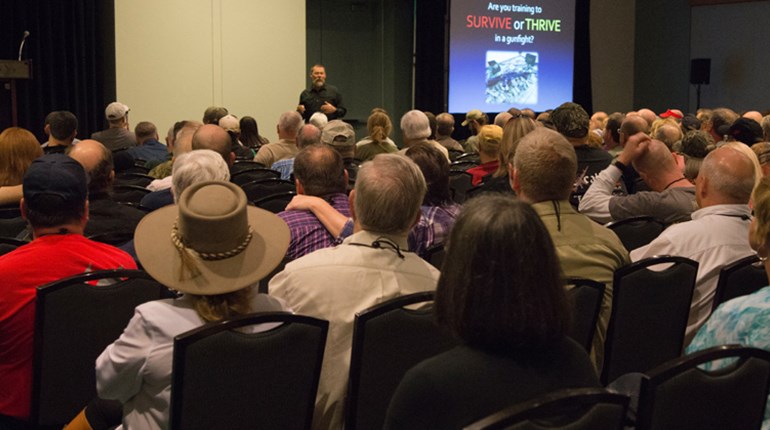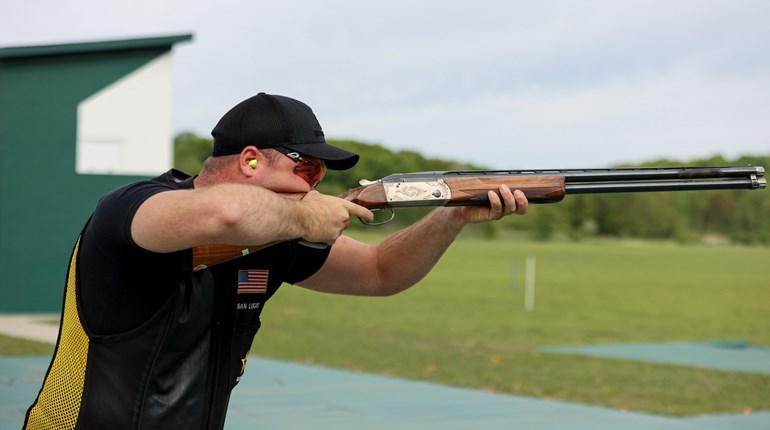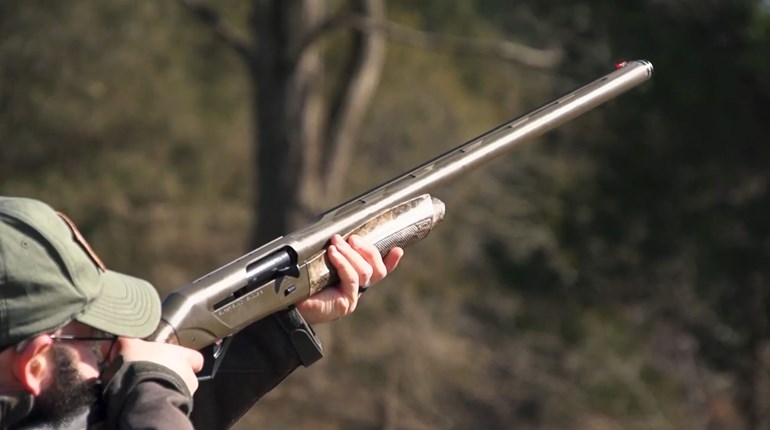
You are by yourself. It is a dark, rainy night and you are driving the family car, heading home after a long day at school and rifle team practice. Glancing in your rearview mirror, you notice the same vehicle has been following you for a few miles now. You are suspicious and the little hairs on your neck are at alert. What do you do? Or, you are home alone and the front doorbell rings. Should you answer it or ignore it and hope whoever it is will go away?
Answers to these scenarios and much more are included in a Refuse To Be A Victim Seminar. Refuse To Be A Victim is the crime prevention and personal safety program of the National Rifle Association. A Refuse To Be A Victim Seminar offers safety information to groups as diverse as high school or college students, to senior citizens and the physically handicapped. A Refuse To Be A Victim Seminar provides everyone with essential information for their safety.
Refuse To Be A Victim is normally a four-hour seminar that teaches methods to promote awareness, avoid dangerous situations and prevent criminal confrontations. Crime prevention and law enforcement experts agree that the most important factor in surviving a criminal attack is to have a safety plan developed before you need it. Attending an entire seminar includes topics such as home, automobile, phone, technology, travel and personal security. Participants are presented with a variety of common‑sense crime prevention and personal-safety strategies and devices they can include into their daily lives.
In order to provide relevant information for teenagers, the Refuse To Be A Victim program can be shortened and tailor-made for any student group. The Refuse To Be A Victim Student’s Handbook includes a module specifically aimed at the high school or college student. The sections on auto security, technology security and personal safety are for everyone.
Some safety tips specifically for teenagers are:
- You should never risk being harmed or injured in order to keep your personal possessions. If you are threatened by someone who wants your property—give it to them. Do not resist. Tell the authorities as soon as possible.
- Avoid known troublemakers and gang members. Hanging out with a rough crowd can lead to very serious problems.
- Avoid all contact with drugs and alcohol and do not associate with other students who use them.
- If you are at a party where guests are using drugs or alcohol, leave immediately. It is too risky to stay.
- Never leave your valuable possessions out in the open and in an unlocked area.
- Don’t wear expensive or unique clothing and jewelry. Designer labels, expensive jewelry or specialty sportswear can attract the wrong type of attention.
And what should you do if you think you are being followed in your car? Do not drive home. Drive to a busy, well-lit location like a store, fast-food restaurant or busy gas station where you can get assistance. Use your cell phone and call the police for help. Get out of the car only on your terms, when you think it is safe. If you need to, use your horn to attract attention to the situation.
If you would like to share this important information with your fellow students, you can have Refuse To Be A Victim come to your campus. First, talk to a school administrator—someone like the principal, a dean of students or guidance counselor—and get their permission and help to have a seminar at your school. Then find a room or auditorium that is large enough to hold the group. You don’t have to include the entire campus for the first seminar. It might be a good idea to focus on a specific group on campus, like the senior class.
Once you have the administrator’s support and your location, contact the Refuse To Be A Victim office at NRA Headquarters and get the names of certified instructors in your area. You can call toll free at (800) 861-1166 and select option 3, or you can email [email protected]. Staff members will assist you in finding an instructor to come to your campus.
Once you turn 18, you can become an instructor yourself. Refuse To Be A Victim Instructors need to be at least 18 years old, have no criminal record and have attended an Instructor Development Workshop (IDW). At the IDW, you will receive all the materials you need to conduct seminars and you will be taught the specifics of running your own events. An IDW is usually a day and a half to two days long. Once you have finished the IDW, you will receive your official NRA Refuse To Be A Victim Instructor certification. Then you can present seminars for your community.
Take control of your personal safety. Remember: Always be alert and aware of your surroundings. Follow your instincts and you can refuse to be a victim!







































